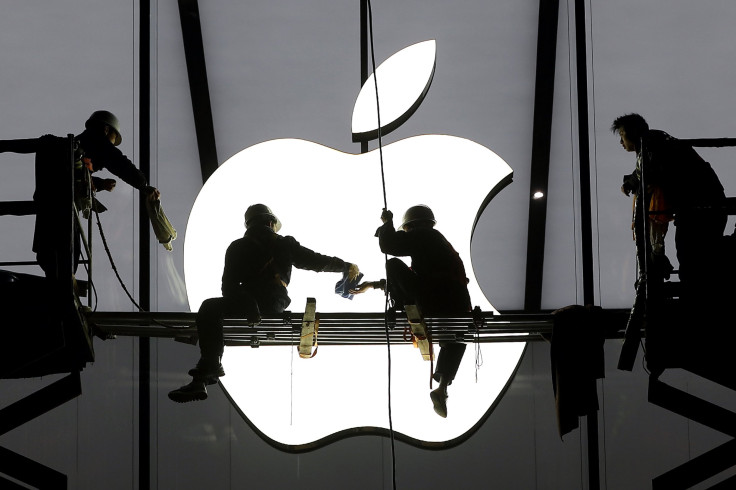Breakfast At Apple Store? Tim Cook Plans Tiffany’s-Like Retail Facelift Ahead Of Gold Watch Debut

The Apple Store, a well-trod showplace for Cupertino’s flagship devices and a second home for gadget geeks, is about to get a decidedly upscale facelift. Apple design chief Jonathan Ive and retail head Angela Ahrendts are looking to redesign the company’s retail outlets to create an environment suitable for selling luxury items like the 18-karat gold Apple Watch, according to a published report.
“The new spaces will surely become a more natural setting for vitrines filled with gold (and perhaps less welcoming, at least in some corners, to tourists and truants),” wrote the New Yorker’s Ian Parker, in a profile of Ive.
The move could help Apple’s plan to sell luxe goods like the gold watch -- or maybe even a car to rival the $70,000-and-up Tesla Model S. But the nod to the 1 percent could alienate longtime fanboy (and fangirl) customers, who helped Apple become the world’s most valuable company by purchasing boatloads of gadgets and content, including the iPhone, the $50 iPod Shuffle and iTunes songs that go for less than a buck.
Apple “is kind of like a monopoly,” said Rachel Wenig, 23, as she browsed the display at the Apple Store at New York City’s Union Square. “I don’t necessarily think they operate in a fair manner in terms of affordable products,” said Wenig, who works as a recruiter.
The revamp has subtly begun in some stores, with iconic Genius Bar logos reportedly disappearing, according to the blog ifo Apple Store. And Apple retail employees recently started wearing preppy polo and crew-neck shirts stitched with the Apple logo over the heart, according to Apple Insider.
By the time the Apple Watch launches in April, bigger transformations could be under way. With Apple positioning at least some versions of the wearable at the luxury market, it will likely have to change part of its store to provide a suitable ambiance. Ive told the New Yorker that he once heard someone say, “I’m not going to buy a watch if I can’t stand on a carpet.”
Instead of having products openly displayed on a table alongside everyday items like the iPod, the Apple Watch may be encased like Cartier jewels, in a glass display, the New Yorker hinted.
Apple’s push into the luxury world is not surprising. It’s already considered a premium brand with every product it pushes out, especially the iPhone, which took 93 percent of smartphone revenues in the fourth quarter, according to Canaccord Genuity. And in China, it’s the most popular luxury brand among millionaires. The question is whether it can continue its move upscale without alienating diehard fans that will often wait in lines for days to purchase new products.
“[Apple Stores] are both a showroom and customer support center,” said Ian Schafer, founder and CEO of marketing firm Deep Focus. “That’s a very difficult balance to strike when you want to be viewed as a more luxurious brand.”
Apple may need to physically separate the two functions, much like Tiffany’s does in its flagship store in New York, according to Schafer. In a decidedly Dickensian way, a separate floor for customer service would separate high-rollers looking to buy a gold watch from the customer who just schlepped in with a broken iPad. That approach might fly in New York, a city where new, deluxe condos provide separate entrances for tenants on rent control. How it might play out at, say, the Apple Store in West Des Moines, Iowa, is a different story.
Apple stores could use an update. Many locations are more than a decade old, having emerged in 2001 through the suggestion of J.Crew CEO and Apple board member Millard Drexler, under the guidance of former Apple retail chief Ron Johnson.
With Apple projected to sell anywhere from 10 million to 30 million Apple Watches in 2015, providing a suitable retail environment may be necessary. "It's the difference between walking into a Tourneau versus walking into a Target," Schafer said. Indeed, some fanboys are embracing the idea of a more rarefied shopping experience. “I don’t have a problem with it as long as services are good,” said Bubba Sankon, a 29-year-old Ph.D. student at Columbia University who also was shopping at the Union Square store.
© Copyright IBTimes 2024. All rights reserved.












